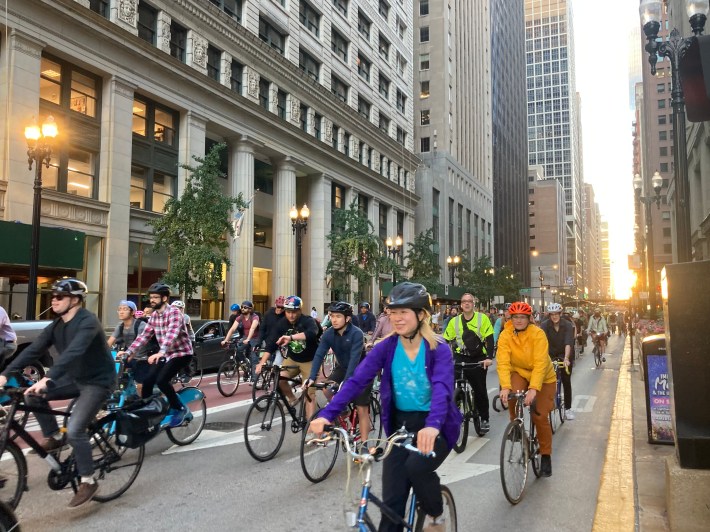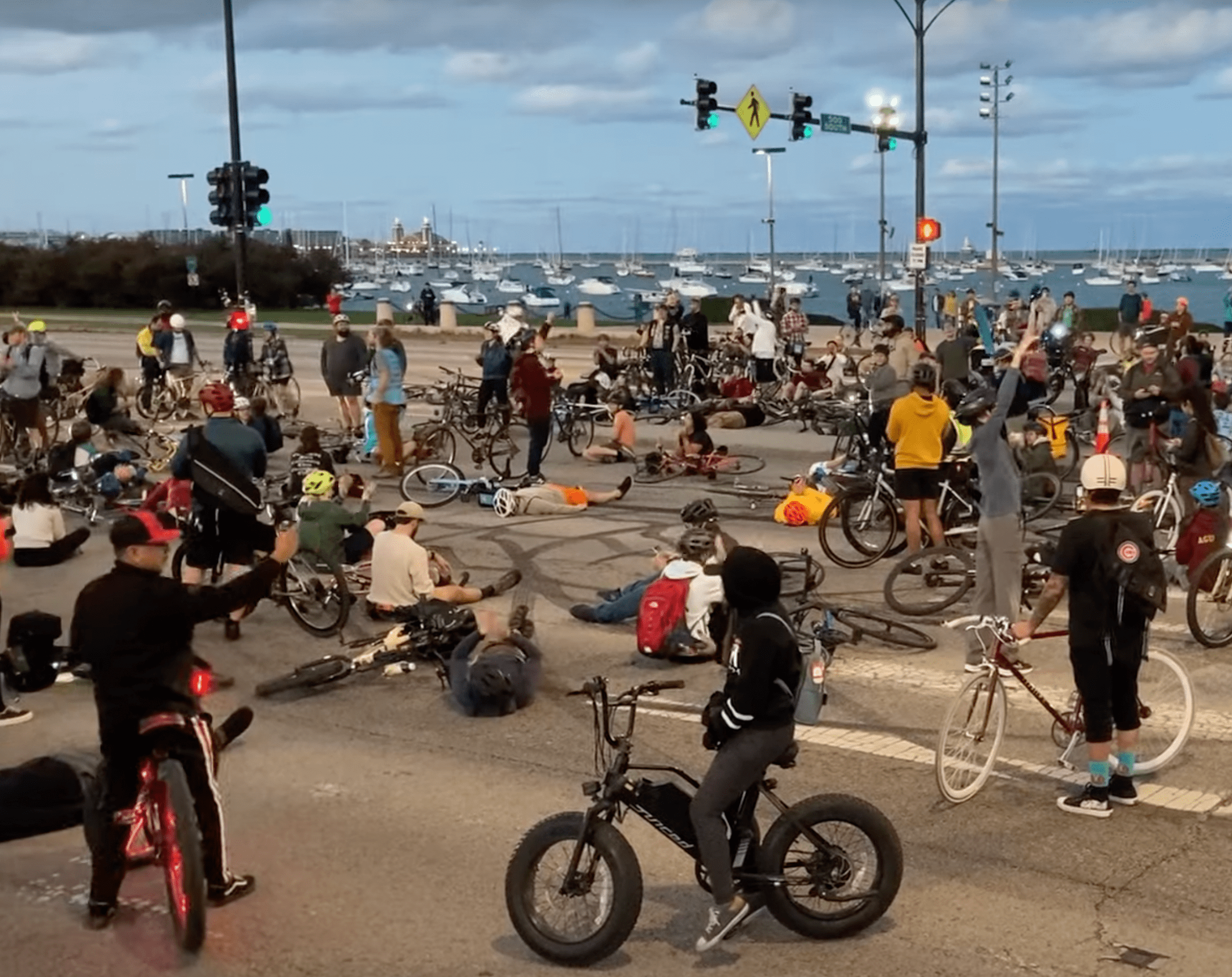Thursday night I did a quick writeup of the massive Jamapalooza event hosted that evening by Chicago, Bike Grid Now as part of World Car Free Day. The meetup drew hundreds of people on bicycles who pedaled downtown via six different Bike Bus rides originating at locations across Chicago, plus a seventh ride at Daley Plaza. they were there to demonstrate in favor of a citywide network of bicycle-priority streets.
The culmination of the rally, a dramatic "die-in" protest on DuSable Lake Short Drive next to Buckingham Fountain, deserves a little more discussion. Police officers escorting big bicycle demonstrations like the monthly Critical Mass ride typically try to stop participants from riding on the eight-lane shoreline highway, which is illegal. To reassure officers that they weren't planning to have attendees bicycle on the drive, the Jamapalooza organizers cleverly announced at the fountain that participants would cross the highway with the walk signal to take a group photo next to Lake Michigan.

But that was something of a ruse. On the way back, CBGN cofounder Carl Beien announced over a megaphone that the group would be blocking the road, and in-the-know members began lying on the pavement, calling attention to recent traffic fatalities. Closest to home, on February 28 of this year, a driver ran a red at the highway's Balbo Drive intersection, two blocks south of Buckingham, fatally striking technical consulting engineer Gerardo Marciales, 41 as he crossed DLSD on a Divvy bike. The police, appropriately, didn't try to stop the protest, which delayed drivers for a few minutes, but simply helped block oncoming traffic when the participants finally left the highway.
Here's a transcript of Beien's remarks, delivered so passionately he was hoarse by the end.
"We are demanding safe in the city of Chicago," Beien said. "This is the greatest city in the world. There's never been a city in the world like the great city of Chicago. But it is far too dangerous on these roads. This very road is a block. This is a wall between the citizens and [Lake Michigan.] We need freedom in this city. We need freedom from violence. We need freedom from car culture. This is our city. This is our lakefront. We are intentionally blocking the road so that people understand the violence we feel on a daily basis."
Drivers started honking. Participants started hooting and hollering.
Chicago, we deserve better than the scraps of safe streets infra that @chicagosmayor, @ChicagoDOT, and alderpeople give us. We deserve a safer and more equitable way to get around our city. We deserve a Bike Grid and we will keep jamming till that happens. #bikegridnow pic.twitter.com/MKCgIj3GGk
— Chicago, Bike Grid Now! (@bikegridnow) September 25, 2022
One thing that was really notable about the action was just how many human beings were able to fit onto all that asphalt, how empty the drive looked in the moment after the cyclists left, and how depressing it was when the roadway was flooded with large metal boxes once more. All-in-all, it was a very effective and moving act of civil disobedience.





